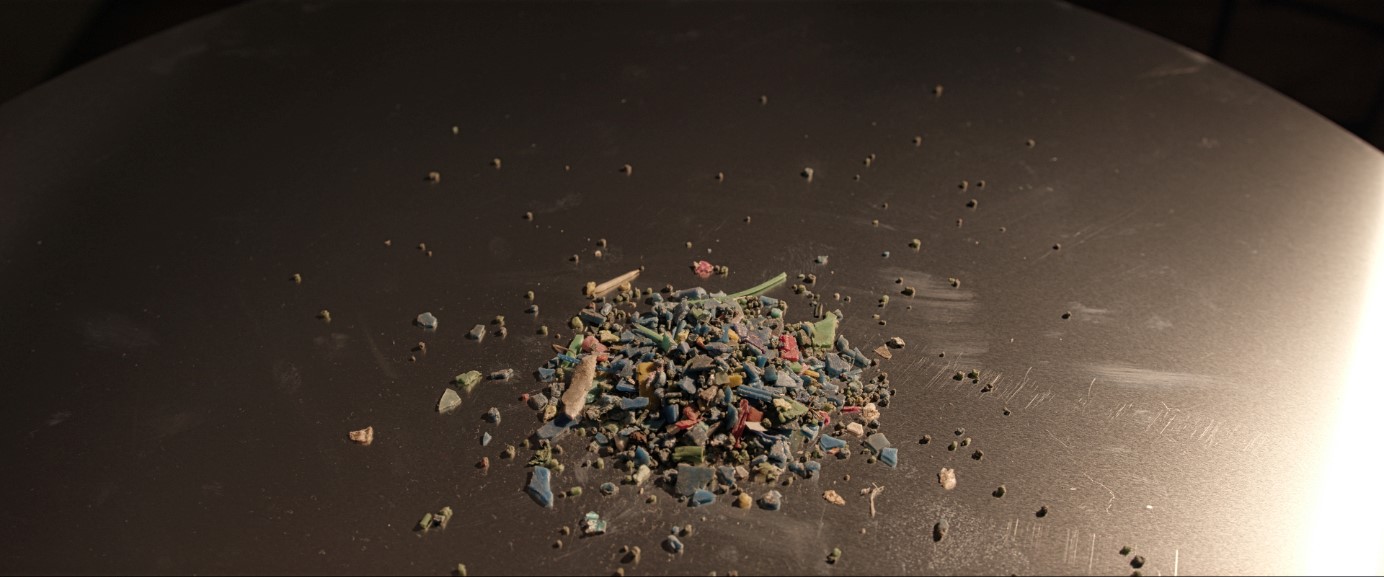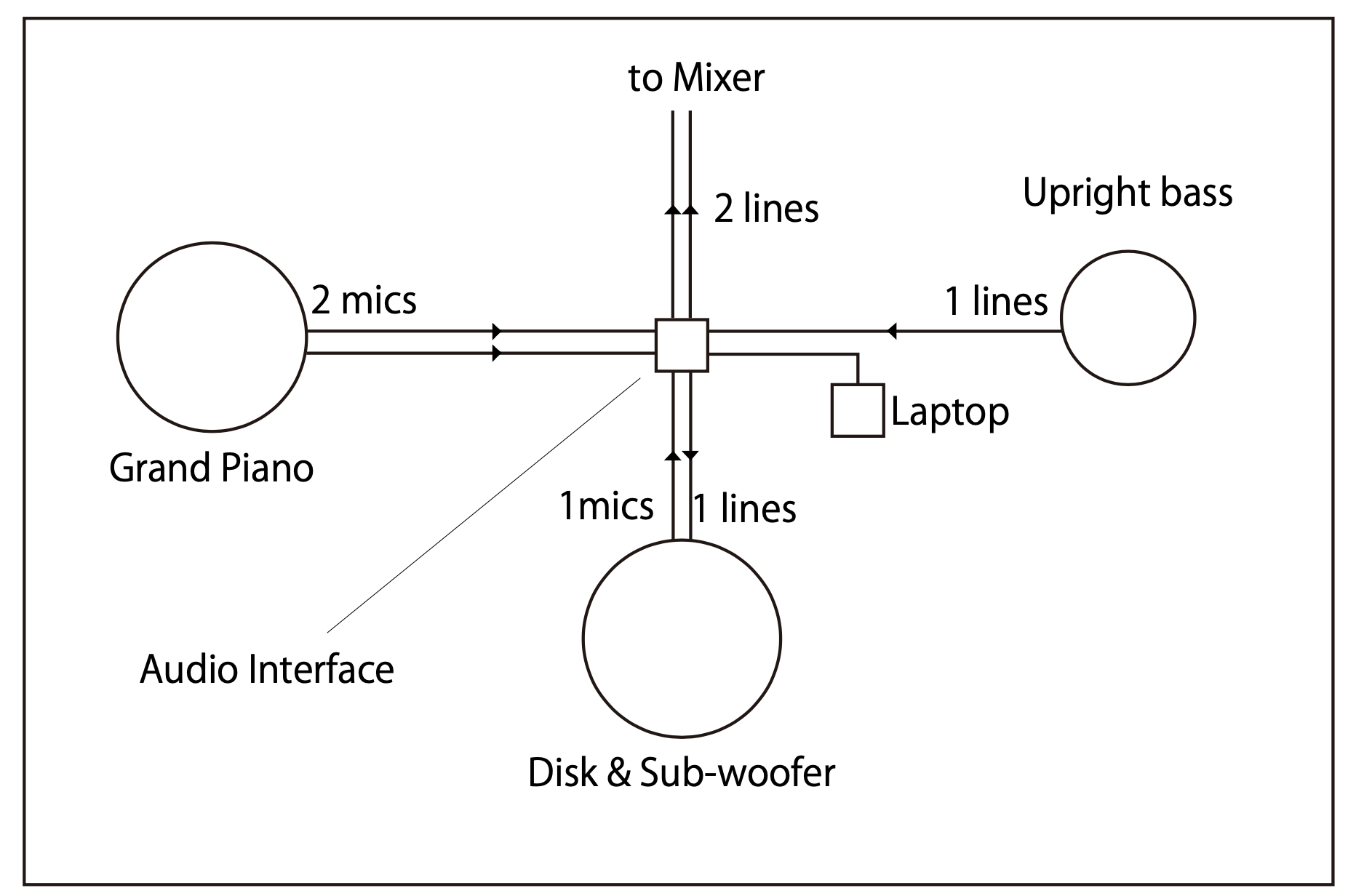Gifts from microplastics
Performance and sound installation, 2020
Duo with Hazuki Ohta
Composition/Contrabass: Keisuke Tsuchiya
Piano: Hazuki Ohta
Accepted for NYCEMF 2020
Material: Microplastics, Aluminium disk(800mm in Diameter), 15" Woofer unit
"Gifts from Microplastics" is an electro-acoustic and media performance that provides us with an opportunity to reflect on the relationship between humans and the environment, particularly regarding Plastic Pollution, which has become a significant social problem in recent years. This work explores the connection between microplastics and humans through a rule-based composition that involves interactions between microplastics and the performers.

A large amount of plastic is generated from human activities, which is carried into the sea, tossed around, and ultimately accumulates as microplastics. Microplastics are tiny pieces of plastic that exist in human life, particularly in the ocean, and their existence contributes to the environmental issue of plastic pollution. Plastic pollution disrupts ecosystems in the sea, as fish, shellfish, and seabirds accidentally ingest microplastics in the seawater. Additionally, microplastics can enter our digestive system when we consume fish and shellfish that have ingested these particles.
In this work, an electro-acoustic performance featuring piano and upright bass players is combined with the environmental issue of plastic pollution. We gathered microplastics mixed with sand along the coast, which were identifiable by their buoyancy as they floated on top of the water in a bucket.
"Gifts from Microplastics" is a performance featuring two individuals: Keisuke Tsuchiya, an upright bass player and composer, and Hazuki Ohta, a pianist and environmental activist. The microplastics on the disc vibrate with the speaker when the contrabass is played, moving along with the vibrations as if they possess lives, creating click-clack sounds, and ultimately falling to the floor where the players are. The disc is divided into twelve parts and assigned a twelve-tone scale. The rules dictate that the piano must be played depending on the position of the microplastics on the floor. The sounds of the piano create more vibration in the microplastics, leading to an increased number of microplastics falling to the floor, causing the sounds of the piano and microplastics to repeatedly scream.
Plastics have made our lives more convenient, but they also pose a threat to various forms of life and return to us as unexpected gifts.

In this work, an electro-acoustic performance featuring piano and upright bass players is combined with the environmental issue of plastic pollution. We gathered microplastics mixed with sand along the coast, which were identifiable by their buoyancy as they floated on top of the water in a bucket.
"Gifts from Microplastics" is a performance featuring two individuals: Keisuke Tsuchiya, an upright bass player and composer, and Hazuki Ohta, a pianist and environmental activist. The microplastics on the disc vibrate with the speaker when the contrabass is played, moving along with the vibrations as if they possess lives, creating click-clack sounds, and ultimately falling to the floor where the players are. The disc is divided into twelve parts and assigned a twelve-tone scale. The rules dictate that the piano must be played depending on the position of the microplastics on the floor. The sounds of the piano create more vibration in the microplastics, leading to an increased number of microplastics falling to the floor, causing the sounds of the piano and microplastics to repeatedly scream.
Plastics have made our lives more convenient, but they also pose a threat to various forms of life and return to us as unexpected gifts.
Early prototype in 2019
